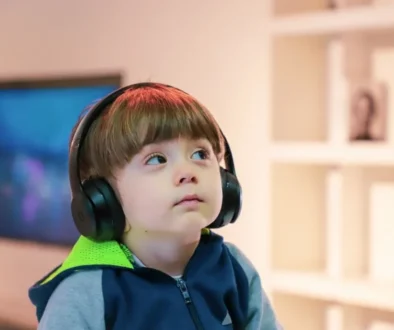Autism vs ADHD: My Child Is Showing Signs of Both
You’re worried about your child. They exhibit difficulty sitting still, are extra sensitive to sounds, and may struggle to focus. These symptoms may be severe enough that they struggle with everyday activities.
The question: is it ADHD or autism?
While ADHD and autism do share some symptoms, these are two very different conditions. A proper diagnosis is essential to ensure your child gets the treatment they need. However, it may be difficult to differentiate ADHD from autism without help.
In this guide, we’ll discuss the key differences between autism vs. ADHD. Then, you’ll be one step closer to getting your child the correct treatment.
Autism vs. ADHD: What Are the Symptoms for Each?
It’s important to understand one thing: ADHD is not on the autism spectrum. While experts are still unsure what causes each one, the consensus is that ADHD is a separate condition.
Let’s discuss the symptoms of both in order to better understand them.
Autism Symptoms
Autism is not one concrete condition, but rather a spectrum. Some individuals will have very strong symptoms, making it difficult for them to live everyday life. Others will have less, allowing them to be high-functioning.
The main issue for those with autism is difficulty with socializing. They may struggle to connect with others on an emotional level and may have difficulty communicating in an effective way.
Autism onset can begin from a young age. Parents should be on the lookout for early warning signs.
Here are a few common symptoms of autism:
- Heavy reliance on their daily routine, and frustration when it changes
- Delayed communication abilities, particularly with speech
- Propensity to sensory overload, meaning they are easily overstimulated
- A hyperactive focus on a limited set of interests or things
- Lack of eye contact
- Repetitive behavior, including but not limited to flapping their hands or rocking back and forth
Autism leads to many delays in developmental milestones. Babies may babble, smile, or even laugh much later than their peers. They may struggle with very basic sentences when other children have mastered them.
Autism is a lifelong condition. People on the spectrum may experience a variety of symptoms well into their adulthood. What matters is that they get treatment and learn to handle their symptoms.
As many as 30% of children have low-functioning autism. That means that the vast majority of people are high-functioning. Symptoms are manageable, and they can live fulfilling lives without intensive care.
Now let’s take a look at some of the symptoms of ADHD.
ADHD Symptoms
ADHD stands for attention deficit hyperactivity disorder. As the name implies, this condition is characterized by an inability to focus and hyperactive behavior. This hyperactivity may manifest as a form of impulsiveness, too.
However, ADHD may include one or both of these symptoms. Like with autism, those who suffer from ADHD fall on a spectrum. One person might have sensory overload ADHD, making them touch sensitive as well as being hyperactive.
Someone who struggles with attention deficiency, but not hyperactivity, may only have ADD. ADD stands for attention deficit disorder.
Like with autism, symptoms might set in early. These symptoms may seem similar to those of autism. The symptoms of ADHD come in two different types.
Attention Deficit Symptoms
- A limited attention span
- Bouncing back and forth between multiple tasks
- Struggling to organize those tasks into a structured schedule
- Quickly getting bored with monotonous or tedious tasks
- Forgetfulness, and a propensity to lose things
- Suffering from sensory overload in places with lots of distractions
Hyperactive Symptoms
- Constant fidgeting, and inability to sit still no matter their surroundings
- Extreme difficulty focusing on a single task
- Excessive energy, leading to frequent physical movement and talking
- Impulsive decision-making
- Minimal patience, especially when it comes to waiting for one’s turn
- Irritability and a short temper, sometimes accompanied by mood swings
- Quickly becoming overwhelmed in stressful situations
Many who have ADHD also exhibit symptoms of anxiety and depression. These are often lifetime conditions. Some may benefit from medication and/or therapy.
Like with autism, there is a spectrum of ADHD. Some people may have extreme versions of many of these symptoms. Others may only have one or two, allowing them to be high-functioning.
How Do You Tell Them Apart?
The main difference between autism and ADHD is the social aspect. Those with autism struggle to understand the emotions of others and struggle to communicate their thoughts.
Further, those with ADHD usually have no trouble making eye contact. They may in some cases experience speech impediments like those with autism. However, their social development is, on the whole, more normal.
Those with ADHD can often handle a bit of spontaneity. For someone with autism, sticking to the plan is essential.
Those with ADHD tend to be self-reliant and high-functioning. Even those with extreme cases can live alone, hold a job, and take care of themselves. Those with autism, however, have more trouble with these things even on the lower end of the spectrum.
Is It Possible to Have Both Autism and ADHD?
The short answer is yes. Although these conditions are not the same, they are related. It’s perfectly normal for someone with autism to have ADHD, and vice versa.
However, it’s important to recognize where these two conditions overlap.
For example, someone with hyperactivity disorder may bite their nails. This helps them to deal with anxiety and gives them stress and an energy outlet.
Someone with autism may exhibit the same hyperactivity. This is especially the case when they experience a mood swing or meltdown.
Both are impulsive, lack focus, and may struggle to organize all of their tasks. Both may exhibit some degree of social awkwardness, although autistic people have far more social difficulty.
Lastly, both types suffer from being overstimulated. Strong sounds and visuals can overwhelm them.
Get an Autism Diagnosis in Texas
When it comes to autism vs. ADHD, there are a lot of similarities. Those who have autism and ADHD may suffer from many overlapping symptoms. However, these are two different conditions, and it’s important to diagnose which one your child has.
Getting an autism diagnosis is essential so your child can get the right treatment. And since a child with autism may prove difficult to bring into an office, telemedicine might be your best best.
Texas children can get virtual help today from Autism DFW. Get in contact and schedule an appointment for your child.



